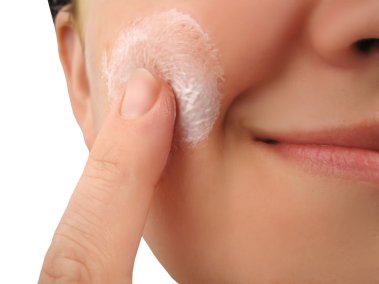 |
Wednesday, 19 August 2015
Stanford study measures health benefits of nature walks
Mood:
 bright
Topic: Health bright
Topic: Health

Most of us know we feel a bit better after time in the wilderness but is it all just in our heads? Nope! Researchers from Stanford show that we can measure how a walk in nature does a body good. They showed quantifiable results that it reduces the risk of depression. According to the researchers, people living in cities have a 20 percent higher risk for anxiety disorders, a 40 percent higher risk of mood disorders and even have a higher risk of developing schizophrenia. Retreats to natural spaces can mitigate this. Stanford News reports, "The study, published in Proceedings of the National Academy of Science, found that people who walked for 90 minutes in a natural area, as opposed to participants who walked in a high-traffic urban setting, showed decreased activity in a region of the brain associated with a key factor in depression... The researchers found little difference in physiological conditions, but marked changes in the brain. Neural activity in the subgenual prefrontal cortex, a brain region active during rumination – repetitive thought focused on negative emotions – decreased among participants who walked in nature versus those who walked in an urban environment." In other words, the National Park System should be considered a public health service! Creating and maintaining parks, open space preserves, state and national parks and even small green spaces within the urban landscape where nature is accessible are vital to a happy country. Read more: http://www.mnn.com/health/blogs/stanford-study-measures-health-benefits-nature-walks#ixzz3fgaOyQYg
Posted by Neil Bartlett DHyp M.A.E.P.H
at 00:01 MEST
Updated: Wednesday, 19 August 2015 15:30 MEST
Tuesday, 17 June 2014
Is the noise of modern life making you ill?
Mood:
 d'oh
Topic: Health d'oh
Topic: Health

We are surrounded by the sounds of the machinery that make our lives comfortable and convenient. The constant thrum of traffic, the thunder of jet engines overhead. But when we have to listen to these noises for too long or at the wrong time, they can inflict silent and stealthy damage. Increasing evidence shows this damage isn't just to our ears, but to our blood vessels and hearts. Nor is this just a problem for people who live near busy roads or under flight paths. New research suggests noise pollution also causes harm in places such as hospitals. Last week the world's experts gathered in Japan to discuss the latest findings about noise and health. Perhaps most eye-catching was the study that linked noise pollution to your waist size. In a four-year project published last year, researchers from Karolinska University in Sweden found that the louder the traffic noise to which people in different parts of Stockholm were exposed, the greater the increase in their waist size - there was nearly a centimetre increase for every ten-decibel rise in the noise levels. This is like the difference between a whispered conversation and the noise level in an average house or personal office. Last month, scientists from Karolinska University found an even more dramatic effect from plane noise. After tracking more than 5,000 people for ten years, they reported that the waistlines of those most exposed to plane noise increased on average by 6 cm. A similar study last year by the School of Public Health at Imperial College London found that being exposed to higher levels of aircraft noise around Heathrow raised the risk of admission to hospital for heart disease by 20 per cent. The effects of noise pollution are even felt by babies in the womb. In another of the studies presented at last week's conference, researchers from Utrecht University in the Netherlands examined data from more than 68,000 births and found that for every six-decibel increase in traffic noise there was a drop of 15g to 23g in birth weight. Read more: dailymail.co.uk
Posted by Neil Bartlett DHyp M.A.E.P.H
at 00:01 MEST
Updated: Tuesday, 17 June 2014 01:39 MEST
Monday, 12 May 2014
What Most Doctors Won’t Tell You About Colds and Flus
Mood:
 chatty
Topic: Health chatty
Topic: Health

The next time you experience a cold or the flu, remember this: rather than take conventional drugs to suppress uncomfortable symptoms, it’s better for your health to allow the cold or flu to run its course while you get plenty of physical and emotional rest. Conventional medicine and the pharmaceutical industry would have you believe that there is no “cure” for the common cold, that you should protect yourself against the flu with a vaccine that is laden with toxic chemicals, and that during the midst of a cold or flu, it is favorable to ease your discomfort with a variety of medications that can suppress your symptoms. Unfortunately, all three of these positions indicate a lack of understanding of what colds and flus really are, and what they do for your body. Colds and flus are caused by viruses. So to understand what colds and flus do at a cellular level, you have to understand what viruses do at a cellular level. Do you remember learning about cellular division in grade seven science class? Each of your cells are called parent cells, and through processes of genetic duplication (mitosis) and cellular division (cytokinesis), each of your parent cells divides into two daughter cells. Each daughter cell is then considered a parent cell that will divide into two more daughter cells, and so on. Viruses are different from your cells in that they cannot duplicate themselves through mitosis and cytokinesis. Viruses are nothing but microscopic particles of genetic material, each coated by a thin layer of protein. Due to their design, viruses are not able to reproduce on their own. The only way that viruses can flourish in your body is by using the machinery and metabolism of your cells to produce multiple copies of themselves. Once a virus has gained access into one of your cells, depending on the type of virus involved, one of two things can happen:
1 -The virus uses your cell’s resources to replicate itself many times over and then breaks open (lyses) the cell so that the newly replicated viruses can leave in search of new cells to infect. Lysis effectively kills your cell.
2 - The virus incorporates itself into the DNA of your cell, which allows the virus to be passed on to each daughter cell that stems from this cell. Later on, the virus in each daughter cell can begin replicating itself as described above. Once multiple copies of the virus have been produced, the cell is lysed. Both possibilities lead to the same result: eventually, the infected cell can die due to lysis. Here is the key to understanding why colds and flus, when allowed to run their course while you rest, can be good for you: By and large, the viruses that cause the common cold and the flu infect mainly your weakest cells; cells that are already burdened with excessive waste products and toxins are most likely to allow viruses to infect them. These are cells that you want to get rid of anyway, to be replaced by new, healthy cells.
So in the big scheme of things, a cold or flu is a natural event that can allow your body to purge itself of old and damaged cells that, in the absence of viral infection, would normally take much longer to identify, destroy, and eliminate.
Have you ever been amazed by how much “stuff” you could blow out of your nose while you had a cold or the flu? Embedded within all of that mucous are countless dead cells that your body is saying good bye to, largely due to the lytic effect of viruses. So you see, there never needs to be a cure for the common cold, since the common cold is nature’s way of keeping you healthy over the long term. And so long as you get plenty of rest and strive to stay hydrated and properly nourished during a cold or flu, there is no need to get vaccinated or to take medications that suppress congested sinuses, a fever, or coughing. All of these uncomfortable symptoms are actually ways in which your body works to eliminate waste products and/or help your body get through a cold or flu. It’s fine to use over-the-counter pain medication like acetaminophen if your discomfort becomes intolerable or if such meds can help you get a good night’s rest. But it’s best to avoid medications that aim to suppress helpful processes such as fever, coughing, and a runny nose. It’s important to note that just because colds and flus can be helpful to your body doesn’t mean that you need to experience them to be at your best. If you take good care of your health and immune system by getting plenty of rest and consistently making health-promoting dietary and lifestyle choices, your cells may stay strong enough to avoid getting infected by viruses that come knocking on their membranes. In this scenario, you won’t have enough weak and extraneous cells to require a cold or the flu to work its way through your body to identify and lyse them. Curious about how to differentiate the common cold and the flu? Here is an excellent summary of the differences from cbc.ca: A cold usually comes on gradually — over the course of a day or two. Generally, it leaves you feeling tired, sneezing, coughing and plagued by a running nose. You often don’t have a fever, but when you do, it’s only slightly higher than normal. Colds usually last three to four days, but can hang around for 10 days to two weeks. Flu, on the other hand, comes on suddenly and hits hard. You will feel weak and tired and you could run a fever as high as 40 C. Your muscles and joints will probably ache, you will feel chilled and could have a severe headache and sore throat. Getting off the couch or out of bed will be a chore. The fever may last three to five days, but you could feel weak and tired for two to three weeks. One final note on this topic: because the common cold and the flu are both caused by viruses, antibiotics are not necessary. People who take antibiotics while suffering with a cold or flu often feel slightly better because antibiotics have a mild anti-inflammatory effect. But this benefit is far outweighed by the negative impact that antibiotics have on friendly bacteria that live throughout your digestive tract. In this light, if you really need help with pain management during a cold or flu, it is usually better to take a small dose of acetaminophen than it is to take antibiotics. About the Author Dr. Ben Kim is the author of www.drbenkim.com, where this article originally appeared. Source - http://wakingtimes.com
Posted by Neil Bartlett DHyp M.A.E.P.H
at 00:01 MEST
Updated: Monday, 12 May 2014 01:20 MEST
Monday, 27 January 2014
Sitting For Prolonged Periods Is Stalling Your Metabolic Machinery
Mood:
 cheeky
Topic: Health cheeky
Topic: Health

There are serious consequences that result when the muscular engine sits on 'idle' and in long periods in sedentary positions. Prolonged sitting can lead to loss of shoulder motion, chronic pain, walking deficits, neck-related headaches, the inability to exercise, and can literally impede the ability to metabolize fat and sugar, potentially raising the risk for cardiovascular disease. A common misconception about good posture is that it can be maintained by only doing occasional strength training. Good posture is more than just sitting-up straight and holding your shoulders back, and if you don't have the muscle strength, you aren't going to be able to hold that posture for very long. By maintaining your strength and being consciously aware of your posture, you can maintain proper posture and mobility well into your elder years. Put simply, the danger in prolonged sitting is that it "stalls the metabolic machinery," as Dr James Levine professor of medicine stated. "The body has an exquisitely designed system for trafficking fuels such as carbohydrates and fats." According to Dr Levine, this "physiology of inactivity" results in a variety of immediate, undesirable effects. For instance, inactivity impedes the ability to metabolize fat and sugar and it also elevates triglycerides, potentially raising the risk for cardiovascular disease. Prolonged sitting weakens muscles, which can lead to back pain, arthritis and joint problems. Previous research has demonstrated that sitting for long periods suppresses lipase, an enzyme involved in fat metabolism that is produced only when leg muscles flex -- low levels are associated with heart disease and other illnesses. Sex hormones, including estrogen and testosterone metabolism, also are affected, Dr Levine noted, adding that "these impact all aspects of physical and emotional states." Those who sit for long periods have a two fold increase in their risk of diabetes, heart disease and death. Importantly, associations were independent of the amount of moderate-to-vigorous physical activity undertaken, suggesting that even if an individual meets typical physical activity guidelines, their health may still be compromised if they sit for long periods of time throughout the day. Read More - preventdisease.com
Posted by Neil Bartlett DHyp M.A.E.P.H
at 00:01 CET
Updated: Monday, 27 January 2014 01:05 CET
Wednesday, 8 January 2014
Bad skin? Are you causing it yourself?
Mood:
 a-ok
Topic: Health a-ok
Topic: Health

Having bad skin is something that millions of people deal with every single day, and for the most part, it's a very preventable condition. From adolescent breakouts to adult acne, there are varying degrees of having "bad skin," and most of the cases have to do with bad decisions. More recently, science has been able to shed light on possible catalysts for these conditions, and the data discovered has opened the eyes of many. From food choices and overall gut function to body product selection, the list is quite extensive. The diet and skin connection This is by far one of the most influential factors in relation to dealing with skin issues. Grains, sugar and processed foods have been repeatedly tied to acne and other skin conditions such as eczema. By now, there is no denying that one's diet has a direct correlation to the quality of his or her skin. By eliminating sugars, refined grains (gluten) and processed, preserved foods from the diet, an individual can have much success in the fight against bad skin - it has been scientifically proven. Yet, out of the many foods that can contribute to this problem, sugar has got to be the worst of them all. For those who don't already know, sugar leads to elevated insulin levels, which in turn can lead to the production of acne-producing bacteria. This is an overlooked area of dermatology within the modern medical system. Toxic cosmetics In the world of so-called "beauty products," people have become quite gullible and fall for a lot of scams - this is no surprise by now. What's important to realize is that chemically dense cosmetic products do not promote beauty or healthy skin - they just seem like they do. From lotions to various types of make up, most of these products are toxic and can cause serious skin (and health) problems for the consumer. The key is to make sure all skin and body products are of high quality with natural ingredients. Coconut oil as a daily lotion is a perfect example of something that is great to use instead of an item that is loaded with chemicals. Select pure, more natural skin products, and healthy skin will follow. Detoxifying your life The Western way of living is very toxic, and conditions such as acne are primarily disorders that plague those within the modernized world. By taking a more natural and organic path in life (foods and body products), these types of conditions can be dealt with more efficiently. It makes sense that the body shows signs of disease when it's constantly being filled with junk. Acne is one of the many signs that the body is not at ease with itself. Learn more: naturalnews.com
Posted by Neil Bartlett DHyp M.A.E.P.H
at 00:01 CET
Updated: Wednesday, 8 January 2014 01:20 CET
Tuesday, 31 December 2013
Eating for Happiness
Mood:
 chatty
Topic: Health chatty
Topic: Health

We are what we eat. As Hippocrates stated long ago, "Let food be thy medicine." Each day we have the choice to nourish our bodies with nutrient-dense foods or poison ourselves with processed, empty calories. Modern research has discovered what endemic cultures knew through their intrinsic wisdom, passed on from generation to generation. New researchers are discovering that traditional diets carry one key to happiness. Weston A. Price, in his meticulous 1930s research, observed that traditional groups knew what foods were needed to ensure the superior health of future generations. These people were happy and healthy. The indigenous groups went to great lengths to obtain foods providing the nutrients required for their optimal physical and mental health. This contrasts greatly with the American fast food culture of easy, processed foods. Real food versus processed Raw milk, cheese and butter from pastured animals fed an organic diet are superfoods, full of nutrients and life-giving properties. See NaturalNews.com. Likewise, meat and fat from pastured, organic-fed animals are far superior in nutrients compared to the meat from factory-farmed animals. Nutrients contained in pastured eggs with their rich orange yolks surpasses that found in factory eggs commonly found in our grocery stores. Organic vegetables and fruits contain higher amounts of vitamins compared to conventional produce. While there is a higher cost paid for better quality foods, this cost will most certainly be repaid and saved in reduced illness and improved health. For those with financial constraints, making simple changes such as replacing processed, boxed cereals with eggs or oatmeal for breakfast can improve health. One can buy butter instead of processed margarine and oils. Substituting fresh vegetables and fruits for chips and "junk food" can enhance nutrition. An excellent health food is home-made broth from meat or fish bones. 100 reasons to avoid processed foods In the book The Happiness Diet, health journalist Tyler Graham and physician Drew Ramsey provide 100 reasons to avoid processed foods. Reason #36 states: "The FDA allows nineteen maggots and seventy-four mites in a three-and-a-half-ounce can of mushrooms." Reason #45 states: "When you buy processed food, you help fund the ten billion dollars spent every year to market junk foods to kids. Since 1980, obesity has tripled among adolescents." #83 states: "Milk from factory-farmed cows treated with growth hormones often contains pus." Happiness foods According to The Happiness Diet, nutrients essential for mental health include vitamins B12, A, D and E, iodine, magnesium, cholesterol, calcium, fiber, folate, omega-3 and iron. Sources for these critical nutrients: shellfish, sardines, fish, fatty fish, wild salmon, liver, duck, dark chicken meat, grass-fed meat and milk, pastured eggs, egg yolk, cheese, yogurt, butter and lard from pastured animals, seaweed, potato skin, green leaves, whole grains, beans, black beans, black-eyes peas, lentils, sunflower seeds, almonds, pecans, walnuts, blackstrap molasses, mushrooms (exposed to sunlight), kale, cabbage, mustard, spinach, broccoli, cauliflower, olives, swiss chard, beet, turnip and collard greens, and fruit. Graham and Ramsey cite research from well-known journals to support their dietary recommendations. Their dietary suggestions are remarkably similar to the nutrient-dense dietary principles discovered by Weston A. Price in his landmark study. Guidelines for better quality foods The following labels can assist in purchasing higher quality foods: U.S. grass-fed, naturally raised, humanely raised, fed an all-vegetarian diet, no rBGH, GMO-free, organic, wild Alaskan and fair-trade. Buying from a local, trusted farmer with no certifications is another good option. Recalling how our great-grandparents ate is one of the best guidelines. One of my favorite kitchen magnets states: "Try organic food...or as your grandparents called it, 'Food.'" Learn more: naturalnews.com
Posted by Neil Bartlett DHyp M.A.E.P.H
at 00:01 CET
Updated: Tuesday, 31 December 2013 01:19 CET
Sunday, 27 October 2013
Seven ways to bulletproof your immune system this winter
Mood:
 bright
Topic: Health bright
Topic: Health

The immune system is where the rubber meets the road, and if you fail to get it in order, your health goes downhill. Start building your immune system by incorporating these seven things to help get you through the winter without wearing a surgical mask on a daily basis. Get grounded Grounding, which is simply putting your skin into direct contact with the surface of the Earth, has a host of benefits with one being to the immune system. Due to its overall anti-inflammatory effects and ability to regulate cortisol secretion, grounding eliminates two important factors that lower your immunity. If you can't access the Earth barefoot, consider using grounding technology. Find a good source of vitamin D If you live in an area with consistent sunlight, all you need to do is get out in the direct sunlight for 20-30 minutes a day. However, during the winter months, it can become increasingly difficult for people further north to access the sun's rays on a consistent basis. In this case, take a liquid vitamin D supplement for those months of little-to-no sunshine then check into that sunny holiday and stock up on the beach. Vitamin D is critical for overall immune function. Take liposomal vitamin C Vitamin C is a commonly known immune booster and is a product typically stocked up on with the winter season approaching. This family favorite has now become even more effective with the introduction of liposomal vitamin C. This formulation utilizes consistent 150mm sized liposomes, which facilitates greater absorption of the vitamin C in the formula. It's one thing to take immune-boosting supplements, and its often quite another to absorb them. Liposomal vitamin C helps address both factors. Consume medicinal mushrooms
In recent years, scientists have been studying the benefits of medicinal mushrooms on the immune system and have found the key to be connected to their beta-glucan content. Beta-glucans have been known by scientists as "biological response modifiers" that bind to the surface of immune cells, which gives them better coordination in their attack. This compound also activates certain immune cells, such as T-cells, macrophages, natural killer (NK) cells and cytokines interleukin 1 and 2. This helps strengthen the immune response to microbial invaders. Go hard on the garlic Garlic has been long known for its potent antibacterial, viral and fungal properties, which strengthens the gastrointestinal and immune systems. Making it a part of your food preparation and incorporating it into a tea with lemon and raw honey will give your immune system some more back up. Get fermenting Fermented vegetables are loaded with vitamins, minerals, enzymes and probiotics, which are all significant factors in strengthening your immune system. A well-mineralized and balanced inner ecology will go a long way in keeping you from getting sick this winter. Get enough rest An often underestimated factor for boosting your immune system is getting enough rest, and at the premiere times of the day. Since the majority of your energy goes to repair and rejuvenation during sleep, it is one of the most important things to do correctly. This means getting to bed before 11pm to facilitate deep sleep in the early hours of the morning (when the best repair takes place) and allowing at least 7 to 8 hours of solid, relatively uninterrupted sleep (taking no more than 5 minutes to get back to sleep if you wake up). Incorporating these seven things this winter will give you enhanced immunity to keep you from becoming a victim of a bacterial or viral infection. Learn more: naturalnews.com
Posted by Neil Bartlett DHyp M.A.E.P.H
at 00:01 MEST
Updated: Sunday, 27 October 2013 02:33 MEST
Saturday, 19 October 2013
Sweating Can Actually Fight off Infection and Illness
Mood:
 chatty
Topic: Health chatty
Topic: Health

Some people like to sweat, and some people just hate it. Those who sometimes enjoy sweating seek out saunas and intense workouts that will help them “break” a sweat, encouraging the release of toxins and a simultaneous release of stress. Others, on the other hand, try to prevent perspiration at every turn by blasting the air conditioning in their vehicles on beautifully warm days and coating on the chemically produced anti-perspirants. But, sweat-haters may want to take heed—recent research has shown that sweat can help us in more ways than one, actually working to keep us healthy while fighting bacteria and fungi. Antibiotic in Sweat Found to Fend off Bacteria According to researchers from across Europe, a protein found on human skin and activated when we sweat is able to kill harmful microbes and even fight those that are resistant to traditional antibiotics. Known as Dermcidin, the protein becomes active when it encounters slightly acidic and salty environments—sweat being the perfect solution. Once activated, it funnels harmful bacteria, viruses, and fungus through its structure, destroying the cells in “fractions of a second,” according to Medical News Today. This, the researchers say, could offer the key to more effective antibiotics in the future, if they can develop those that would mimic the structure and action of dermcidin. Read more: naturalsociety.com
Posted by Neil Bartlett DHyp M.A.E.P.H
at 00:01 MEST
Updated: Saturday, 19 October 2013 02:10 MEST
Wednesday, 25 September 2013
The health tests that just leave you sick with worry
Mood:
 cheeky
Topic: Health cheeky
Topic: Health

So you've received a letter inviting you for screening - for bowel cancer, perhaps, or breast cancer - or your doctor says he needs to check you for the early signs of dementia. But will these actually help you, or could they end up doing more harm than good? For while screening can be life-saving, it can also cause anxiety, false positives and lead to tests and treatments - with side-effects - you might never have needed. All screening programmes - even those approved by the UK National Screening Committee (the official body that assesses which screening is worth offering) - are a mixture of pros and cons. The problem I find, as a GP, is that the official literature about these programmes highlights potential gains far more than possible downsides. This is a highly contentious subject. Certain screening programmes, such as breast screening, cause enormous rifts in the medical community, with some doctors saying that it doesn't work and proponents vehemently disagreeing. So where does that leave you, the patient? First, you need to be clear what screening is. Screening tests are done only where there are no symptoms of disease. So if you have a worrying lump or abnormal bleeding, you need to go to your GP for appropriate diagnostic tests. Unfortunately, every so often I hear about someone who knows she has a lump, for instance, but has waited patiently for a breast screening appointment (all women aged between 50 and 73 are invited for a routine three-yearly mammogram). This isn't the right kind of appointment. What these women need is not just the mammogram they will get with the screening, but usually an ultrasound and biopsy. It's also important to understand that not all the tests the NHS is offering have been validated by the UK National Screening Committee. These experts look at the evidence for screening - just because it sounds sensible to test for diseases before you know you have them, often, when the research is done, the screening just doesn't work. Read more: dailymail.co.uk
Posted by Neil Bartlett DHyp M.A.E.P.H
at 00:01 MEST
Updated: Wednesday, 25 September 2013 12:12 MEST
Saturday, 27 July 2013
Mind-Blowing Experiment - with David Wolfe
Mood:
 bright
Topic: Health bright
Topic: Health
Filmed LIVE at the Longevity Now® Conference 2012
Posted by Neil Bartlett DHyp M.A.E.P.H
at 00:01 MEST
Updated: Saturday, 27 July 2013 01:46 MEST
Newer | Latest | Older
|
| « |
November 2025 |
» |
 |
| S |
M |
T |
W |
T |
F |
S |
|
|
|
|
|
|
1 |
| 2 |
3 |
4 |
5 |
6 |
7 |
8 |
| 9 |
10 |
11 |
12 |
13 |
14 |
15 |
| 16 |
17 |
18 |
19 |
20 |
21 |
22 |
| 23 |
24 |
25 |
26 |
27 |
28 |
29 |
| 30 |
|










